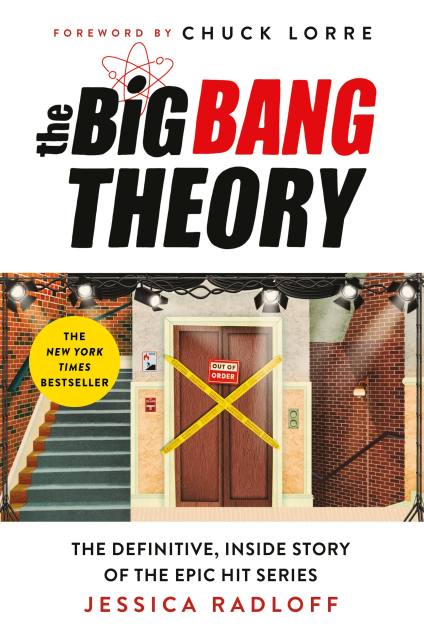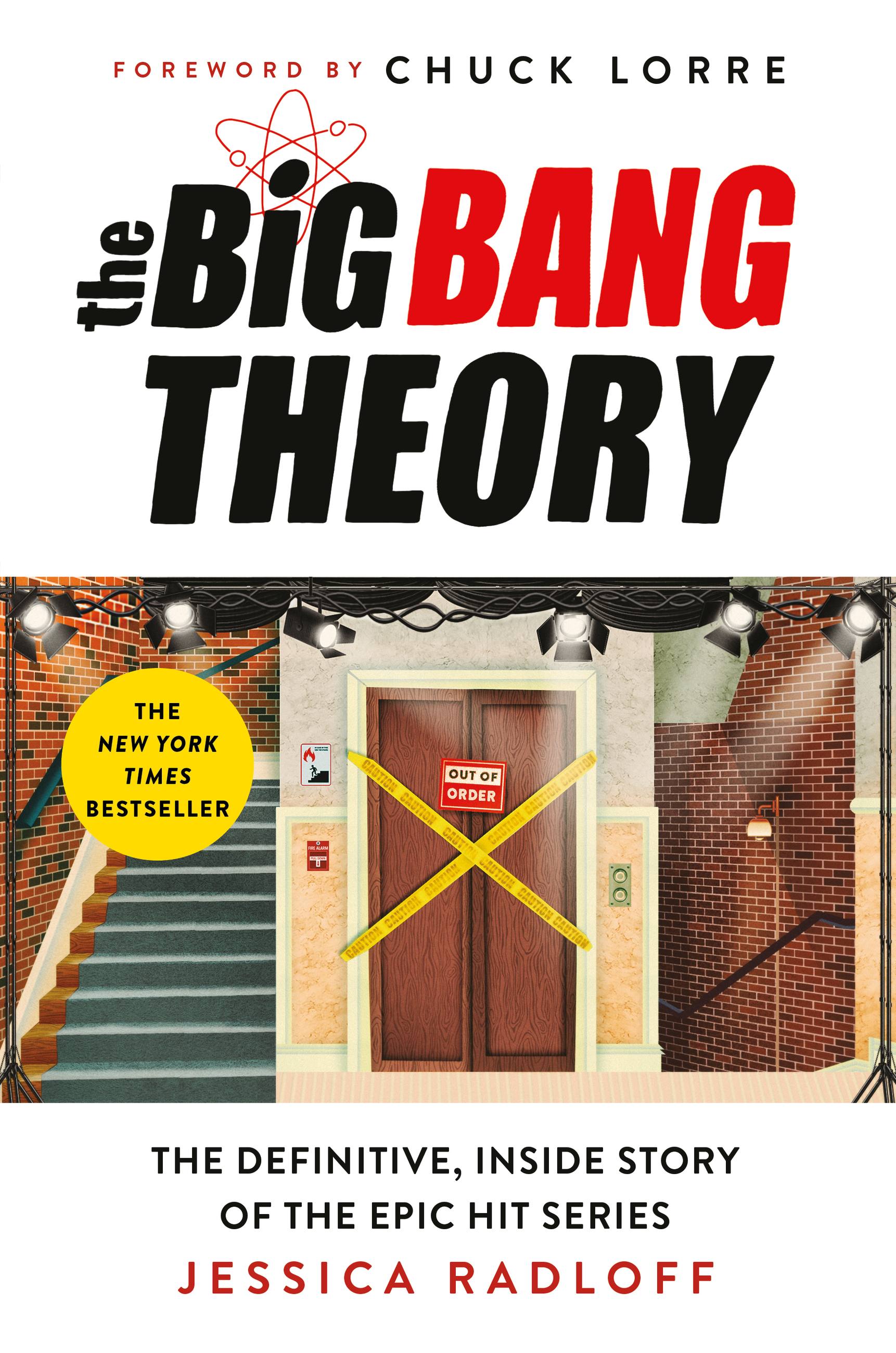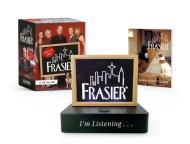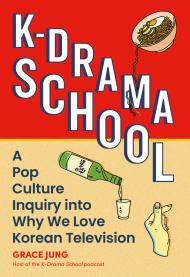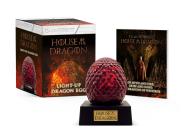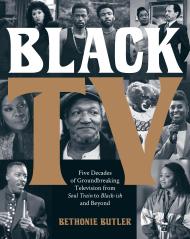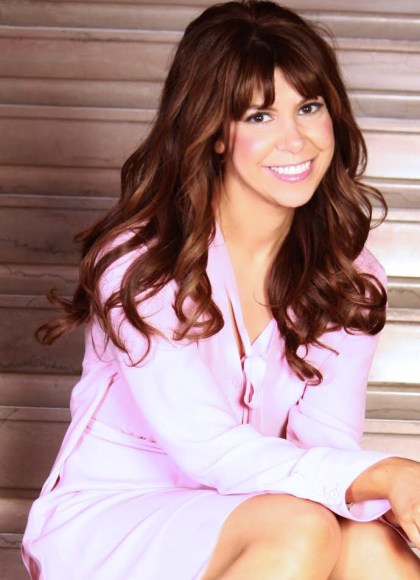Promotion
Use code MOM24 for 20% off site wide + free shipping over $45
The Big Bang Theory
The Definitive, Inside Story of the Epic Hit Series
Contributors
Formats and Prices
Price
$30.00Price
$38.00 CADFormat
Format:
- Hardcover $30.00 $38.00 CAD
- ebook $11.99 $15.99 CAD
- Audiobook Download (Unabridged) $38.99
- Trade Paperback $21.99 $28.99 CAD
This item is a preorder. Your payment method will be charged immediately, and the product is expected to ship on or around October 11, 2022. This date is subject to change due to shipping delays beyond our control.
Also available from:
The definitive, behind-the-scenes look at the most popular sitcom of the last decade, The Big Bang Theory, packed with all-new, exclusive interviews with the producers and the entire cast.
The Big Bang Theory is a television phenomenon. To the casual viewer, it’s a seemingly effortless comedy, with relatable characters tackling real-life issues, offering a kind of visual comfort food to its millions of dedicated fans. But the behind-the-scenes journey of the show from a failed pilot to a global sensation is a fascinating story that even the most die-hard fans don’t know in its entirety.
The Big Bang Theory:The Definitive, Inside Story of the Epic Hit Series is a riveting, entertaining look at the sitcom sensation, with the blessing and participation of co-creators Chuck Lorre and Bill Prady, executive producers Steve Molaro and Steve Holland, as well as Johnny Galecki, Jim Parsons, Kaley Cuoco, Simon Helberg, Kunal Nayyar, Melissa Rauch, Mayim Bialik, and more. Glamour senior editor Jessica Radloff, who has written over 150 articles on the series (and even had a cameo in the finale!), gives readers an all-access pass to its intrepid producing and writing team and beloved cast. It’s a story of on-and-off screen romance told in hilarious and emotional detail, of casting choices that nearly changed everything (which even some of the actors didn’t know until now), of cast members bravely powering through personal tragedies, and when it came time to announce the 12th season would be its last, the complicated reasons why it was more difficult than anyone ever led on. Through hundreds of hours of interviews with the sitcom’s major players, Radloff dives into all this and much more. The book is the ultimate celebration of this once-in-a-generation show and a must-have for all fans.
AN INSTANT NEW YORK TIMES BESTSELLER
A USA TODAY BESTSELLER
NAMED A BEST BOOK OF 2022 BY GLAMOUR
"Talking with Jessica, I realized how easy it had been for me to kind of put all 12 years of my time on Big Bang Theory under one general umbrella, as it were. The questions she asked and the information she’d reveal to me from someone else she’d interviewed forced me into a frame of mind where each season – and sometimes each episode – became it’s own, separate entity again. . . Frankly, it turned into a version of therapy I hadn’t realized I’d needed and couldn’t have known how much I’d enjoy." —Jim Parsons
Genre:
-
NAMED A BEST COMEDY BOOK OF 2022 BY VULTUREVulture
"[An] exhaustive, almost academic oral history... [T]his book serves as a general, and fascinating, behind-the-scenes look at how television is made." -
"[T]here may be no one better to document the series than journalist turned author Jessica Radloff, who undertakes the herculean task in the new, 500-plus page opus, The Big Bang Theory."Forbes
-
"From who was almost cast on the show — literally Marisa Tomei nearly played Penny — to the failed pilot that had to be reworked, [The Big Bang Theory] goes into all the behind-the-scenes details, and it's a fascinating read."Buzzfeed
-
"Each and every interview subject shares with Radloff the kind of stories that most folks save for their memoirs."TV Insider
-
“The book is a must for any The Big Bang Theory fan, but also a fascinating look at the television industry for even the casual viewer.”Paste Magazine
-
"At some point while talking with Jessica, I realized how easy it had been for me to kind of put all 12 years of my time on Big Bang Theory under one general umbrella, as it were. The questions she asked and the information she’d reveal to me from someone else she’d interviewed forced me into a frame of mind where each season - and sometimes each episode - became it’s own, separate entity again, revealing how much we as people had changed through this process, how much the characters changed… but also how certain things remained the same. Frankly, it turned into a version of therapy I hadn’t realized I’d needed and couldn’t have known how much I’d enjoy it, going down memory lane like this."Jim Parsons
-
"I'm so excited for fans to finally see my behind-the-scenes Polaroids for the first time. These photos are very special and super personal, so knowing Jess was taking such care with them, as she did with this book, was very comforting to me."Kaley Cuoco
-
"There is no one more enthusiastic, more knowledgeable, more competent, or more dialed into the pulse of TBBT than Jessica Radloff. Jessica cultivated deep and rich relationships with all of us on TBBT over many years so that she can bring you the most detailed, delightful, and authentic TBBT book there will ever be. Bravo, Jessica, for putting up with us for so many hours of discussion, reminiscence, laughter and tears; thank you for being a part of our show's impact with this thorough and exceedingly well-researched work of art!"Mayim Bialik
-
“I knew we would learn things in this book, but...wow.”Simon Helberg
-
"Jessica Radloff is the ultimate Big Bang whisperer...if you're a fan of the show, you owe it to yourself to read every fascinating word she unearthed in this incredible book!"Melissa Rauch
-
“We spent 12 years together in a very safe bubble. There is no one we trust more than Jessica to share all those years on stage 25. You know the characters, now you’ll get to know the people who played them.”Kunal Nayyar
-
"[T]his book is an excellent testament to the show that will leave fans wanting to rewatch the entire series. . . This extensive and enjoyable oral history of The Big Bang Theory will make fans feel nostalgic for its glory days."Library Journal, starred review
-
"A fun look at the sitcom megahit. . . Entertaining in its own right, this book examines the how and why behind the success of a landmark series."Kirkus Reviews
-
“A definitive and immensely entertaining oral history. . . Filled with delightful memories and charming candid photos, this is a treat for TV fans.”Shelf Awareness
-
“The book is undeniably a valentine to the show.”New York Daily News
-
“If you’re looking for the perfect Christmas gift for someone in your life who happens to be a big fan of “The Big Bang Theory,” there is no better gift than this new book…”Williamson Daily News
-
"The Big Bang Theory, an epic behind-the-scenes oral history by Jessica Radloff, is a must-read book that goes above and beyond. . . I’ve read oral histories before but none have gone to the level of detail. . . It’s impossible to put down and the minute you do, you want to read more!"Solzy at the Movies
- On Sale
- Oct 11, 2022
- Page Count
- 528 pages
- Publisher
- Grand Central Publishing
- ISBN-13
- 9781538708491
Newsletter Signup
By clicking ‘Sign Up,’ I acknowledge that I have read and agree to Hachette Book Group’s Privacy Policy and Terms of Use
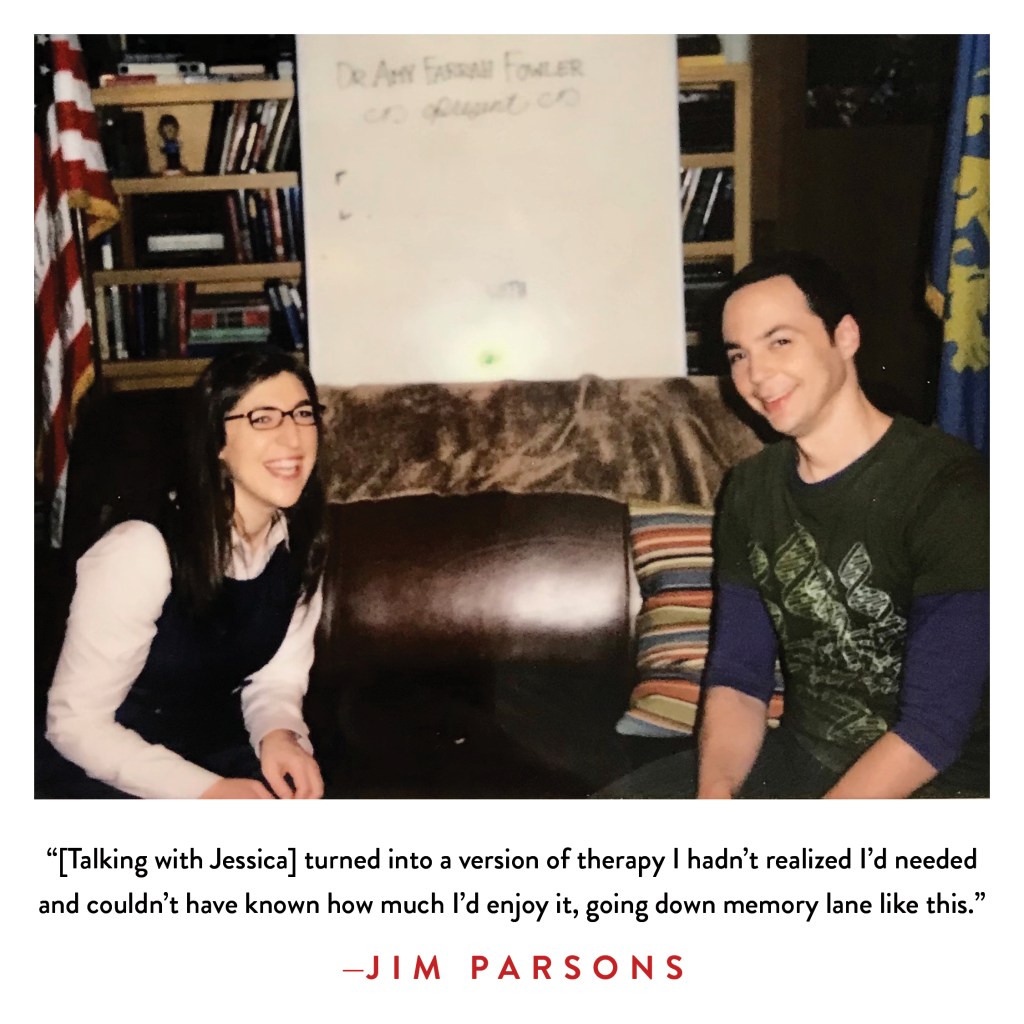
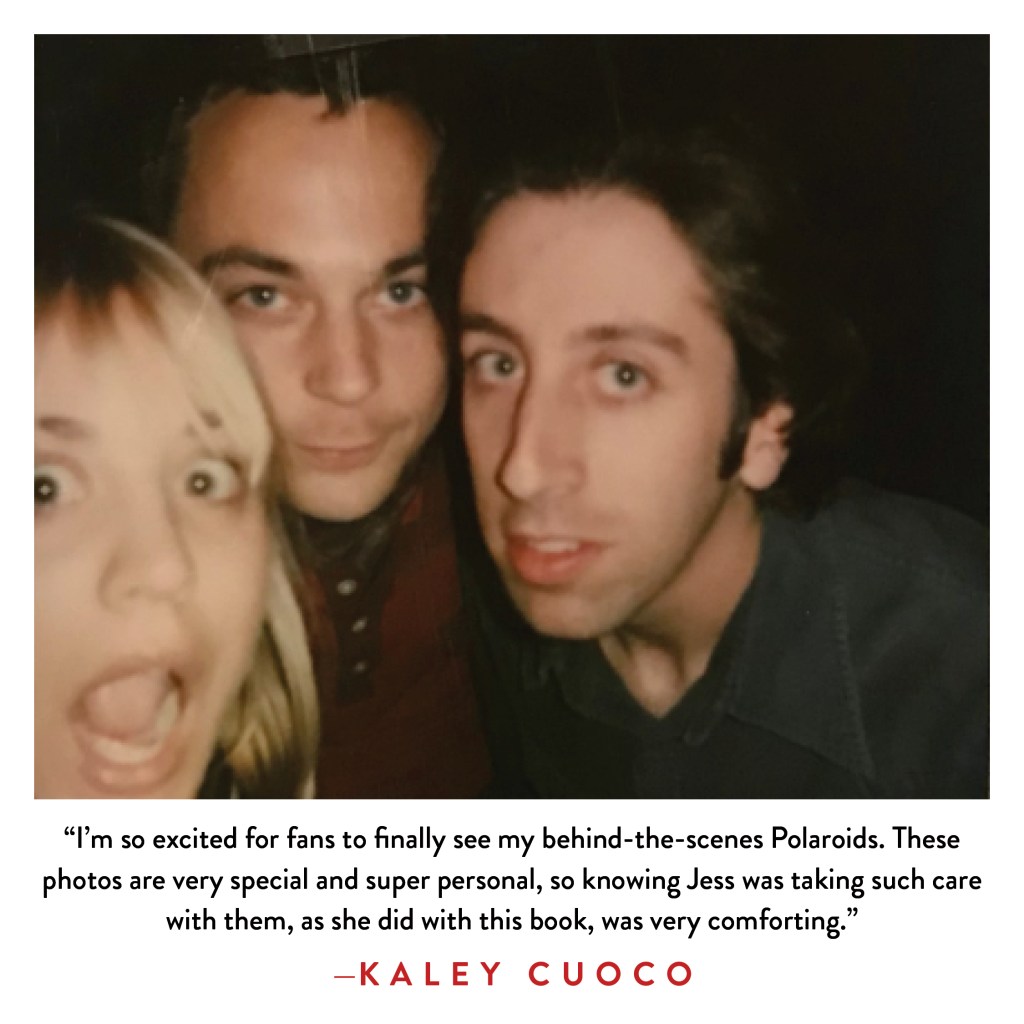
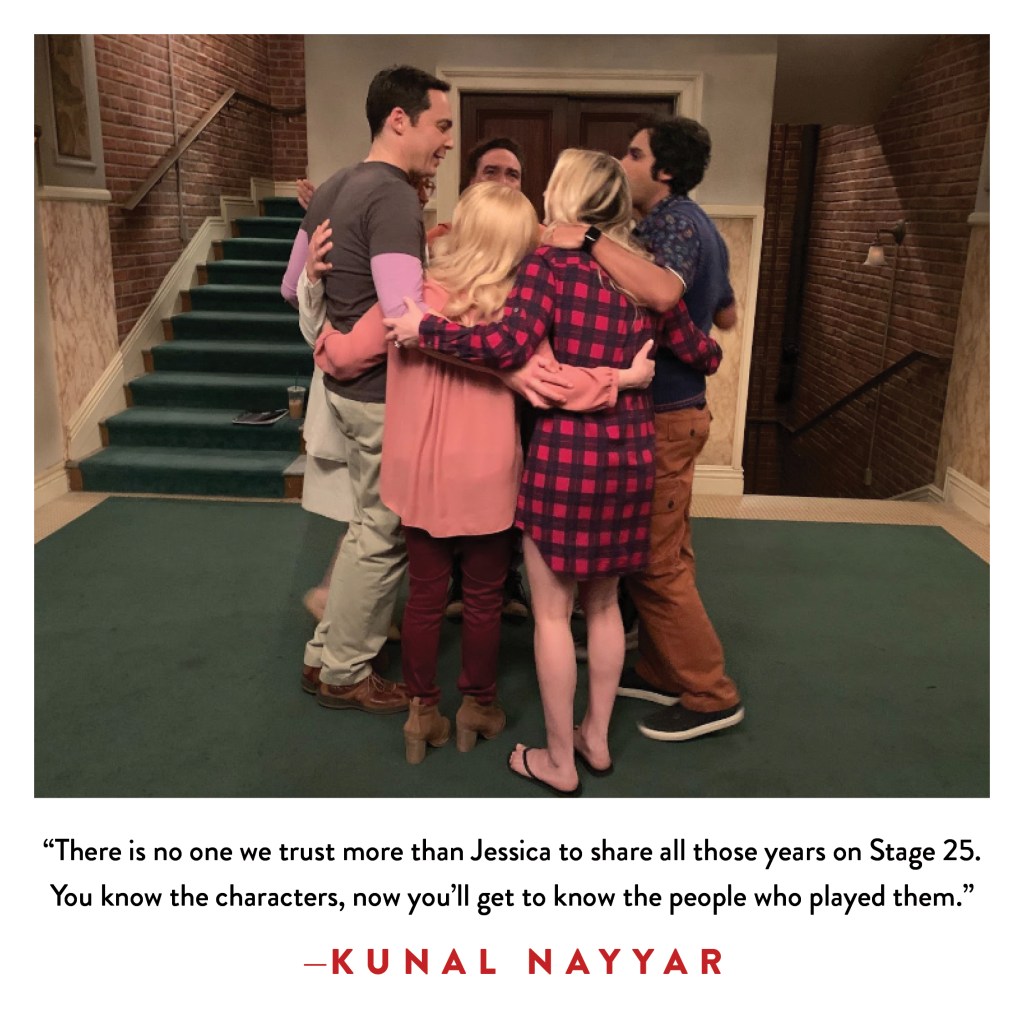
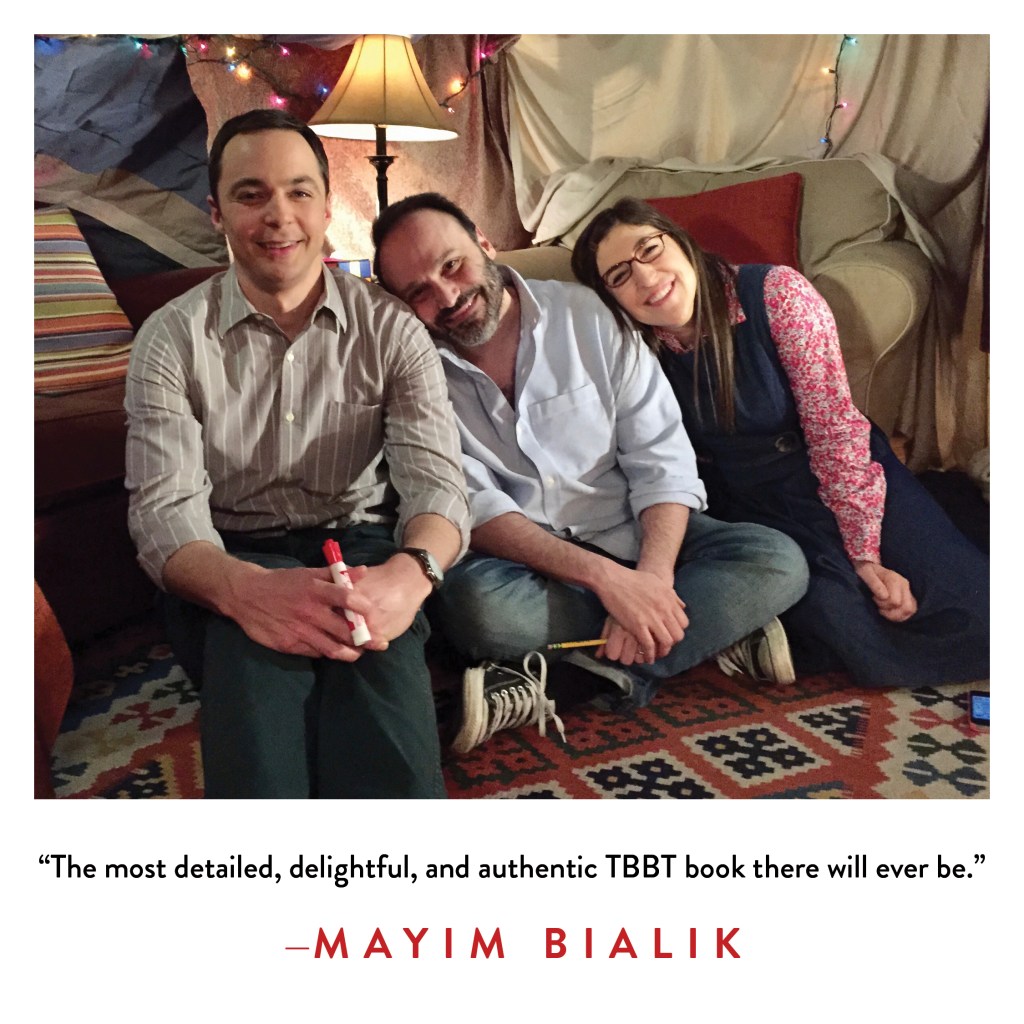
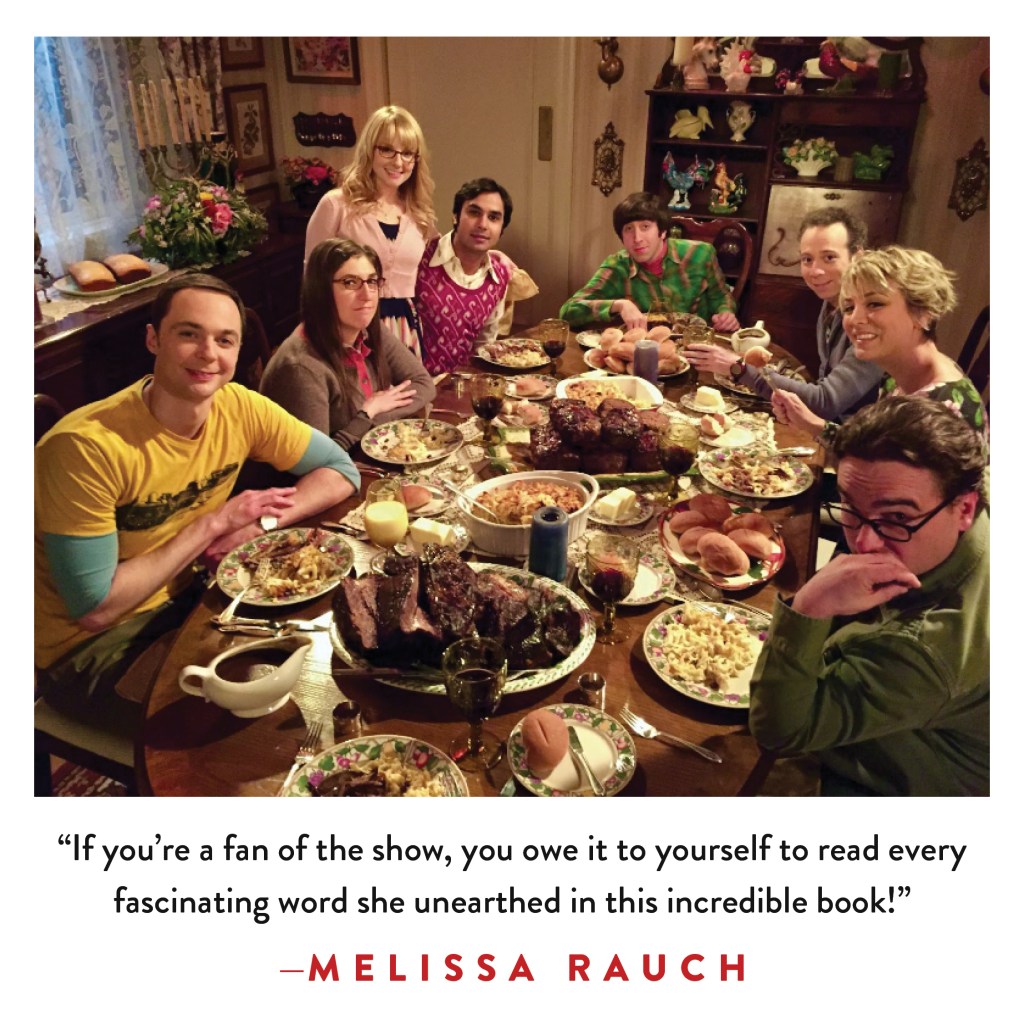
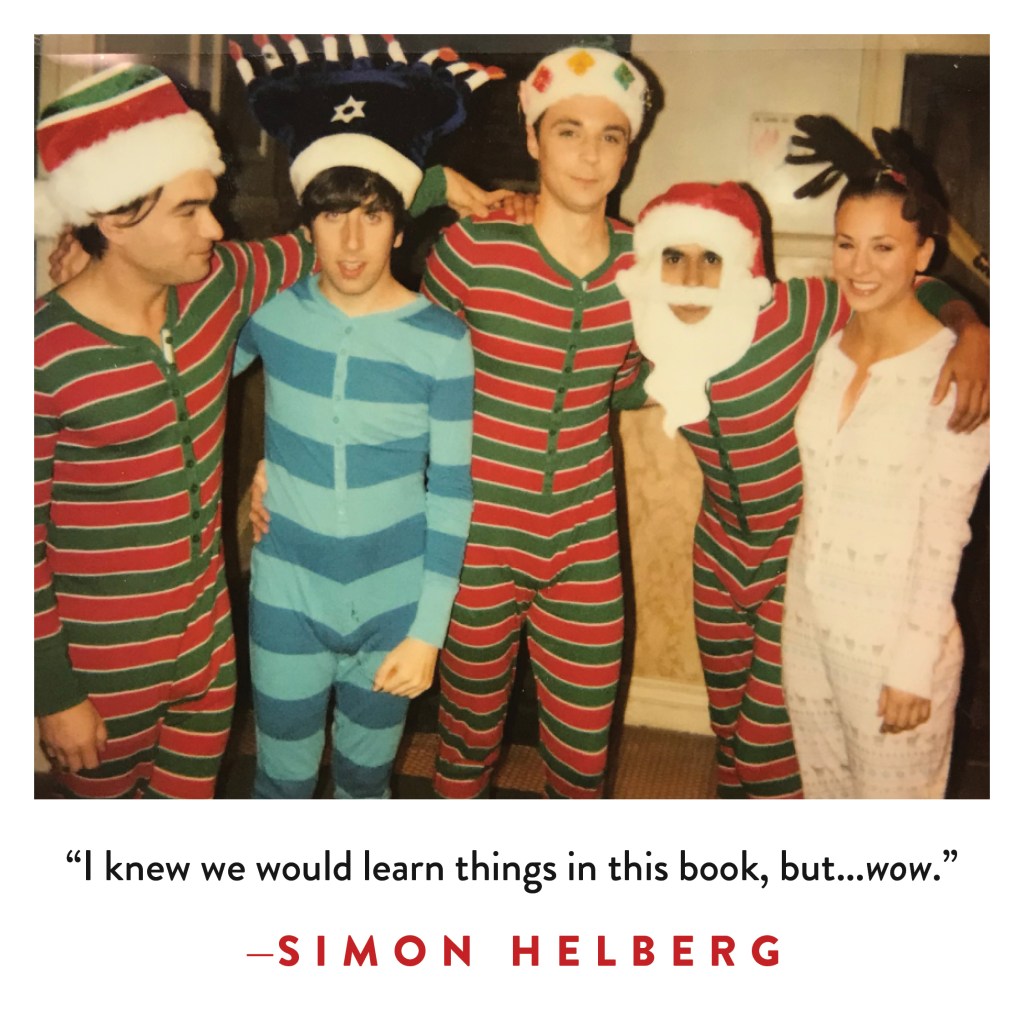
READ AN EXCERPT
INTRODUCTION
HOW THE REUNION CAME TO BE
Two years. One hundred and twenty hours of brand- new interviews over ten months. Thousands of pages of transcripts. One hundred and fourteen pages of notes from rewatching 280 episodes (279 that aired, plus the original pilot that didn’t). I could keep going with statistics, though most likely that’s not why you picked up this book. But they do matter. Those staggering numbers only happened because the creators, cast, producers, writers, studio and network executives, guest stars, etc. of The Big Bang Theory put together a show of such brilliance and magnitude that anything less could not do it justice.
For hours on end, they all thoughtfully answered the longest list of questions they’ve ever been asked. They watched iconic moments with me, texted and emailed me an endless amount of photos (prop master Scott London even dug up the Star Trek transporter room boxes and Penny’s old résumé and driver’s license during our Zoom), and dug up scripts and documents from that first, unaired pilot. And while there was plenty of laughter and joy and tears, no one shied away from going deep when it came to discussing the more difficult moments over the years, whether it be contract negotiations, pay cuts, divorce, miscarriage and loss, to the tumultuous few days when it was decided the show’s twelfth season would be its last. If you’re going to tell the full story of why The Big Bang Theory became one of the most successful, popular, and beloved shows of all time, then it has to be told from all angles and all perspectives. And it is. Thanks to them.
But perhaps even more remarkable was the time and access they gave of themselves to do that. It’s not like they weren’t busy with other projects; all of them have numerous TV shows or films going on, but it was continued proof just how important Big Bang was and is to their lives. Bill Prady got on Zoom for a follow‑up interview (after doing hours of interviews as it was) the day before leaving for his wedding in New York. Melissa Rauch and I did interviews often while she was doing the dishes at 11 p.m. after working on new scripts for Night Court and getting her kids to bed. Kaley Cuoco had me over to her home to go through pictures for this book, which just happened to be the same day she was nominated for her first Emmy award (you know, casual). Truthfully, I blame executive producer Steve Molaro for setting the tone when he did a nearly four- hour interview for our first session, which I ended only because I got hungry. And that’s just scratching the surface of what everyone from Chuck Lorre to Mark Hamill did to make this book come to life.
I’ll never forget what Jim Parsons said on the first of what would be over twenty hours of interviews: “I’m reading Mike Nichols’s biography right now and you just love to go back and hear the stories about how it was made, because you felt something for the work. It moved you. It changed you in some way. And that’s a real honor. It’s one of the reasons I was so glad to say we should do these conversations, however many we’re going to do, because if it’s worth looking into, it’s worth getting new and interesting facts out there. When stuff is good, celebrates humanity, and I think that feeling is what’s hard to ignore and not be moved by.”
Here’s the thing: I was never going to be a scientist (full disclosure: I never wanted to), but The Big Bang Theory resonated with me as a viewer— and impacted me as a journalist— more than any other show I’ve covered.
As Glamour’s senior West Coast editor, I wrote more than 150 features / articles / think pieces on the series. I also met many of you throughout the years, whether through social media or in person, and have been forever touched by the stories of what Big Bang meant to you.
And I got it. As a kid and young adult who always felt different and socially behind— three learning “disabilities” will do that to you— I related to Amy’s desire for a best friend; I understood Sheldon’s habits, work ethic, and OCD; I got Raj’s desire to find the love of a lifetime— as well as his doubts about when or if it would ever happen. If my fantasy was to be just as cool as the characters I saw on Friends, the truth is that I— and I think most of us— relate a hell of a lot more to who we saw on The Big Bang Theory.
A show that started as four “nerds” and the hot but ditzy female neighbor became a smart, socially relevant blockbuster of a sitcom that tackled topics like intimacy, consent, motherhood, marriage, career, and money with humor, poignancy, and heart. And as a result, it became one of the greatest sitcoms of our time.
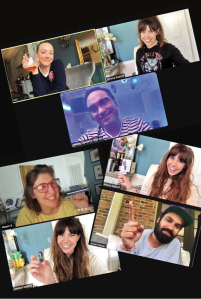
Two years. One hundred and twenty hours of brand- new interviews over ten months. Thousands of pages of transcripts. One hundred and fourteen pages of notes from rewatching 280 episodes (279 that aired, plus the original pilot that didn’t). I could keep going with statistics, though most likely that’s not why you picked up this book. But they do matter. Those staggering numbers only happened because the creators, cast, producers, writers, studio and network executives, guest stars, etc. of The Big Bang Theory put together a show of such brilliance and magnitude that anything less could not do it justice. For hours on end, they all thoughtfully answered the longest list of questions they’ve ever been asked. They watched iconic moments with me, texted and emailed me an endless amount of photos (prop master Scott London even dug up the Star Trek transporter room boxes and Penny’s old résumé and driver’s license during our Zoom), and dug up scripts and documents from that first, unaired pilot. And while there was plenty of laughter and joy and tears, no one shied away from going deep when it came to discussing the more difficult moments over the years, whether it be contract negotiations, pay cuts, divorce, miscarriage and loss, to the tumultuous few days when it was decided the show’s twelfth season would be its last. If you’re going to tell the full story of why The Big Bang Theory became one of the most successful, popular, and beloved shows of all time, then it has to be told from all angles and all perspectives. And it is. Thanks to them. But perhaps even more remarkable was the time and access they gave of themselves to do that. It’s not like they weren’t busy with other projects; all of them have numerous TV shows or films going on, but it was continued proof just how important Big Bang was and is to their lives. Bill Prady got on Zoom for a follow‑up interview (after doing hours of interviews as it was) the day before leaving for his wedding in New York. Melissa Rauch and I did interviews often while she was doing the dishes at 11 p.m. after working on new scripts for Night Court and getting her kids to bed. Kaley Cuoco had me over to her home to go through pictures for this book, which just happened to be the same day she was nominated for her first Emmy award (you know, casual). Truthfully, I blame executive producer Steve Molaro for setting the tone when he did a nearly four- hour interview for our first session, which I ended only because I got hungry. And that’s just scratching the surface of what everyone from Chuck Lorre to Mark Hamill did to make this book come to life. I’ll never forget what Jim Parsons said on the first of what would be over twenty hours of interviews: “I’m reading Mike Nichols’s biography right now and you just love to go back and hear the stories about how it was made, because you felt something for the work. It moved you. It changed you in some way. And that’s a real honor. It’s one of the reasons I was so glad to say we should do these conversations, however many we’re going to do, because if it’s worth looking into, it’s worth getting new and interesting facts out there. When stuff is good, celebrates humanity, and I think that feeling is what’s hard to ignore and not be moved by.” Here’s the thing: I was never going to be a scientist (full disclosure: I never wanted to), but The Big Bang Theory resonated with me as a viewer— and impacted me as a journalist— more than any other show I’ve covered. As Glamour’s senior West Coast editor, I wrote more than 150 features / articles / think pieces on the series. I also met many of you throughout the years, whether through social media or in person, and have been forever touched by the stories of what Big Bang meant to you. And I got it. As a kid and young adult who always felt different and socially behind— three learning “disabilities” will do that to you— I related to Amy’s desire for a best friend; I understood Sheldon’s habits, work ethic, and OCD; I got Raj’s desire to find the love of a lifetime— as well as his doubts about when or if it would ever happen. If my fantasy was to be just as cool as the characters I saw on Friends, the truth is that I— and I think most of us— relate a hell of a lot more to who we saw on The Big Bang Theory. A show that started as four “nerds” and the hot but ditzy female neighbor became a smart, socially relevant blockbuster of a sitcom that tackled topics like intimacy, consent, motherhood, marriage, career, and money with humor, poignancy, and heart. And as a result, it became one of the greatest sitcoms of our time.
What's Inside
Introduction
HOW THE REUNION CAME TO BE

Praise
-
NAMED A BEST COMEDY BOOK OF 2022 BY VULTUREVulture
"[An] exhaustive, almost academic oral history… [T]his book serves as a general, and fascinating, behind-the-scenes look at how television is made." -
"[T]here may be no one better to document the series than journalist turned author Jessica Radloff, who undertakes the herculean task in the new, 500-plus page opus, The Big Bang Theory."Forbes
-
"From who was almost cast on the show — literally Marisa Tomei nearly played Penny — to the failed pilot that had to be reworked, [The Big Bang Theory] goes into all the behind-the-scenes details, and it's a fascinating read."Buzzfeed
-
"Each and every interview subject shares with Radloff the kind of stories that most folks save for their memoirs."TV Insider
-
“The book is a must for any The Big Bang Theory fan, but also a fascinating look at the television industry for even the casual viewer.”Paste Magazine
-
"At some point while talking with Jessica, I realized how easy it had been for me to kind of put all 12 years of my time on Big Bang Theory under one general umbrella, as it were. The questions she asked and the information she’d reveal to me from someone else she’d interviewed forced me into a frame of mind where each season – and sometimes each episode – became it’s own, separate entity again, revealing how much we as people had changed through this process, how much the characters changed… but also how certain things remained the same. Frankly, it turned into a version of therapy I hadn’t realized I’d needed and couldn’t have known how much I’d enjoy it, going down memory lane like this."Jim Parsons
-
"I'm so excited for fans to finally see my behind-the-scenes Polaroids for the first time. These photos are very special and super personal, so knowing Jess was taking such care with them, as she did with this book, was very comforting to me."Kaley Cuoco
-
"There is no one more enthusiastic, more knowledgeable, more competent, or more dialed into the pulse of TBBT than Jessica Radloff. Jessica cultivated deep and rich relationships with all of us on TBBT over many years so that she can bring you the most detailed, delightful, and authentic TBBT book there will ever be. Bravo, Jessica, for putting up with us for so many hours of discussion, reminiscence, laughter and tears; thank you for being a part of our show's impact with this thorough and exceedingly well-researched work of art!"Mayim Bialik
-
“I knew we would learn things in this book, but…wow.”Simon Helberg
-
"Jessica Radloff is the ultimate Big Bang whisperer…if you're a fan of the show, you owe it to yourself to read every fascinating word she unearthed in this incredible book!"Melissa Rauch
-
“We spent 12 years together in a very safe bubble. There is no one we trust more than Jessica to share all those years on stage 25. You know the characters, now you’ll get to know the people who played them.”Kunal Nayyar
-
"[T]his book is an excellent testament to the show that will leave fans wanting to rewatch the entire series. . . This extensive and enjoyable oral history of The Big Bang Theory will make fans feel nostalgic for its glory days."Library Journal, starred review
-
"A fun look at the sitcom megahit. . . Entertaining in its own right, this book examines the how and why behind the success of a landmark series."Kirkus Reviews
-
“A definitive and immensely entertaining oral history. . . Filled with delightful memories and charming candid photos, this is a treat for TV fans.”Shelf Awareness
-
“The book is undeniably a valentine to the show.”New York Daily News
-
“If you’re looking for the perfect Christmas gift for someone in your life who happens to be a big fan of “The Big Bang Theory,” there is no better gift than this new book…”Williamson Daily News
-
"The Big Bang Theory, an epic behind-the-scenes oral history by Jessica Radloff, is a must-read book that goes above and beyond. . . I’ve read oral histories before but none have gone to the level of detail. . . It’s impossible to put down and the minute you do, you want to read more!"Solzy at the Movies
